Synthetic taurine is a mixture of amino acids and sugars, not to be confused with natural taurine, which comes from bovine sources.
As a vegan, you may be wondering whether synthetic taurine is a suitable supplement for your diet.Animal products like meat and dairy naturally contain taurine. However, can vegans consider synthetic taurine as vegan?
Here, we’ll explore how taurine originates and how people produce it synthetically. We’ll also discuss why someone might choose to take a taurine supplement and the potential health benefits and risks associated with doing so.
Whether you’re a seasoned vegan or just starting, understanding the facts about synthetic taurine is crucial to making informed decisions about your diet and health. So, let’s dive in.
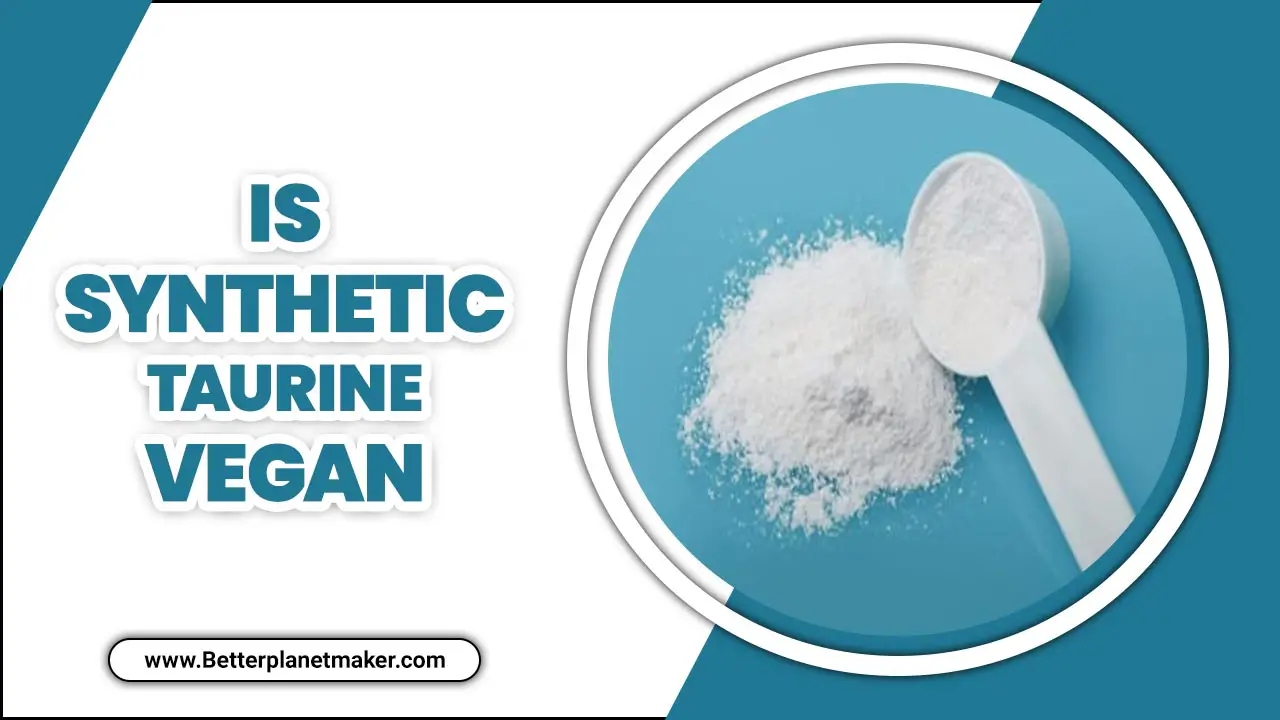
Contents
- 1 Is Synthetic Taurine Vegan: Should You Know
- 1.1 The Sources Of Taurine And Their Vegan Status
- 1.2 Should Vegans Take Taurine Supplements?
- 1.3 Should Vegans Take Taurine Supplements?:
- 1.4 Other Ways To Get Taurine
- 1.5 Identifying Synthetic Taurine:
- 1.6 Formula:
- 1.7 Tips For Choosing Vegan-Friendly Taurine Supplements
- 1.8 Frequently Asked Questions [FAQs]
- 1.9 Is Taurine Vegan?
- 1.10 Does Taurine Come From Meat?
- 1.11 Is Taurine A Non Veg?
- 1.12 Is Red Bull A Veg?
- 1.13 Is There Taurine In Pork?
What Is Taurine, And Why Is It Important?
Taurine is an amino acid that plays a crucial role in the human body. It is involved in various physiological functions, such as regulating heart rhythm, maintaining proper eye function, and supporting the development and function of the central nervous system.
Taurine is considered an essential nutrient as the body cannot produce enough to meet its requirements. It can be obtained from both animal and plant-based sources. However, vegans need to be mindful of their taurine intake, as it is primarily found in animal-derived foods.
Fortunately, vegan-friendly options, such as seaweed, algae, and certain fortified plant-based products, ensure that vegans can meet their taurine requirements through their diet. Blood taurine is a compound commonly found in animal tissues, including human blood.
Is Synthetic Taurine Vegan: Should You Know
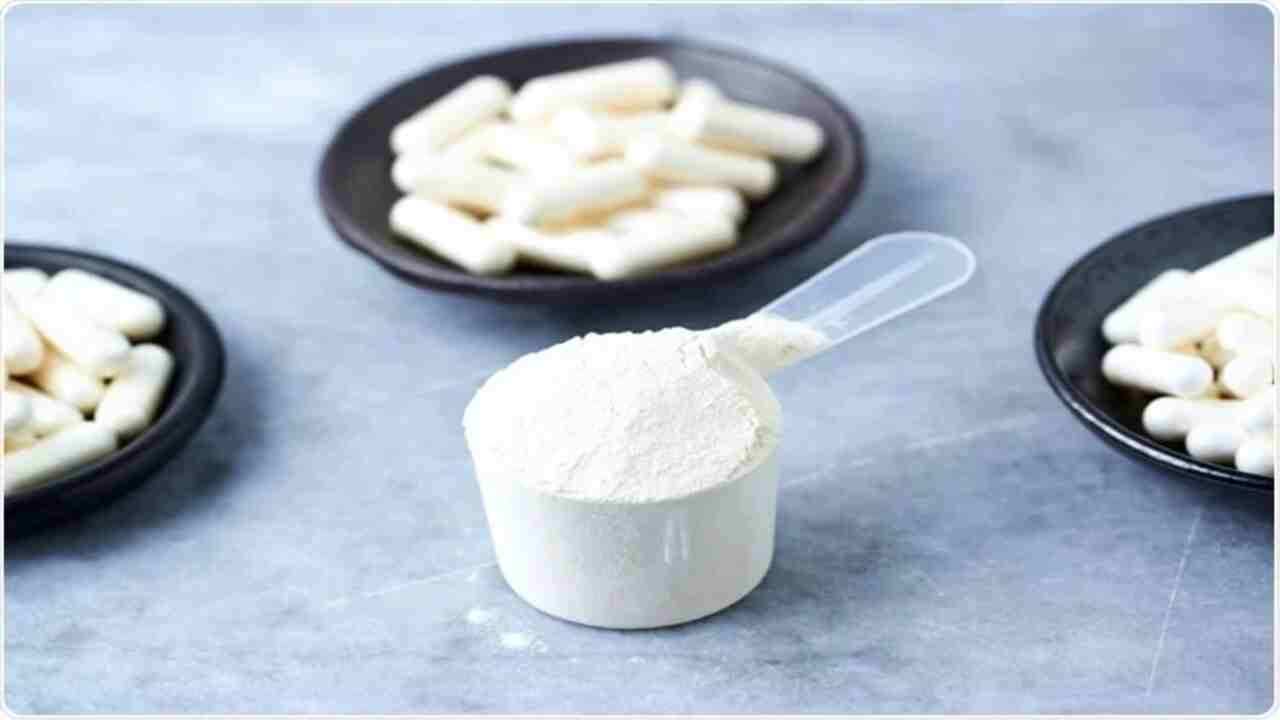
Animal products provide taurine, which can also be synthesized chemically. Taurine exists in various forms, such as protein, pyridoxine, and taurolidine. We can derive tauric acid and three other artificial amino acids from taurosides.
Tauroursodeoxycholic acid and its methoxy salt are available to a lesser extent. The alcoholic extract from carnivorous plants may possess anti-cancer, neuroprotective, and immunomodulatory activities.
Research suggests that taurine can benefit neurological conditions like Alzheimer’s, Huntington’s, and Parkinson’s. Taurine is also a by-product of fatty acid metabolism. The question of the status Is Synthetic Taurine Vegans is complex.
Taurine, an amino acid found in meat and fish, can be lab-synthesized. Some vegans avoid it due to animal-derived materials or animal testing despite its indirect source. Health risks of taurine supplements and limited research on long-term effects are concerns. Vegans should carefully consider ethical and health factors before deciding on supplementation.
Consulting a healthcare professional or dietitian is advisable. Oily fish, eggs, meat, dairy, and fruits like tomatoes also contain taurine. Each gram of taurosides contains about 0.5 grams or 2% elemental taurine.
The Sources Of Taurine And Their Vegan Status
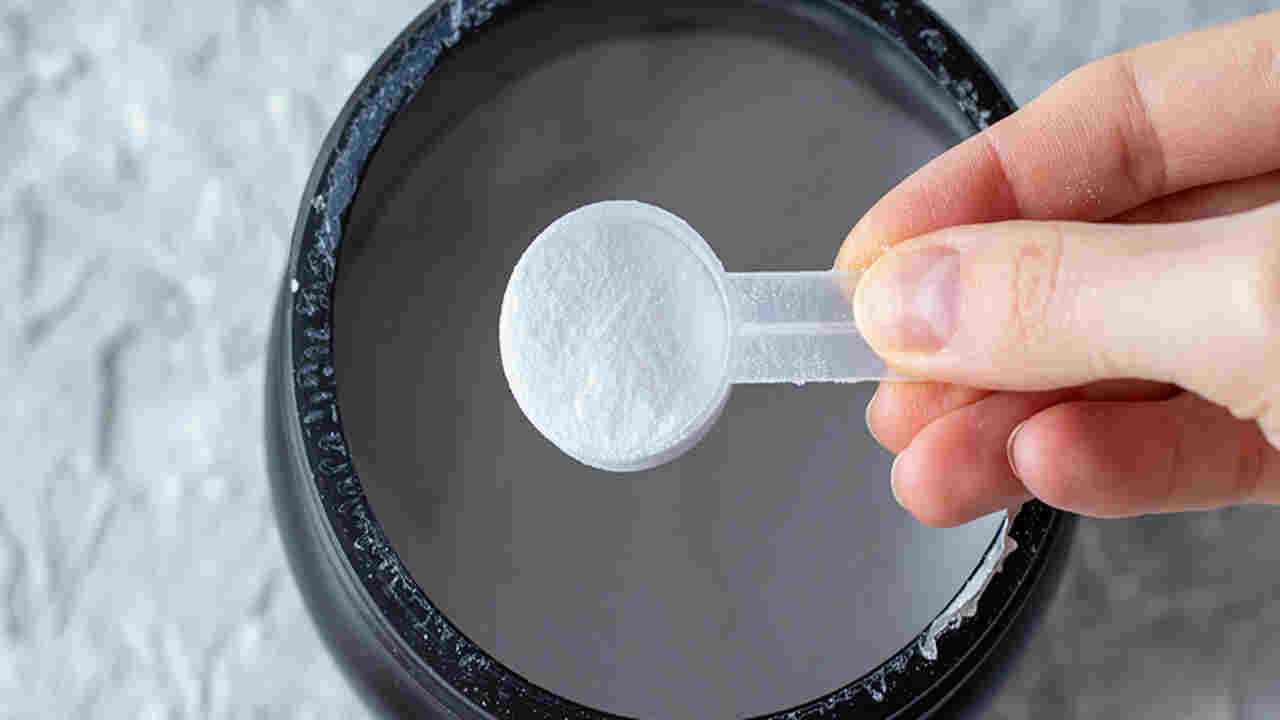
Regarding personal preferences and dietary choices, many individuals opt for a vegan lifestyle. While obtaining essential nutrients through a well-planned plant-based diet is possible, some vegans may choose to incorporate dietary supplements to ensure they meet their nutritional needs.
One such supplement is ascorbic acid, commonly known as Vitamin C. This nutrient is crucial in maintaining a balanced diet and addressing health concerns related to immune function and brain health.
Additionally, many vegans are cautious about consuming artificial flavors, preferring natural and plant-based alternatives to enhance their culinary experiences while adhering to their ethical beliefs. Overall, the vegan community continues to explore diverse sources of taurine, ensuring a compassionate approach to health and wellbeing.
Should Vegans Take Taurine Supplements?
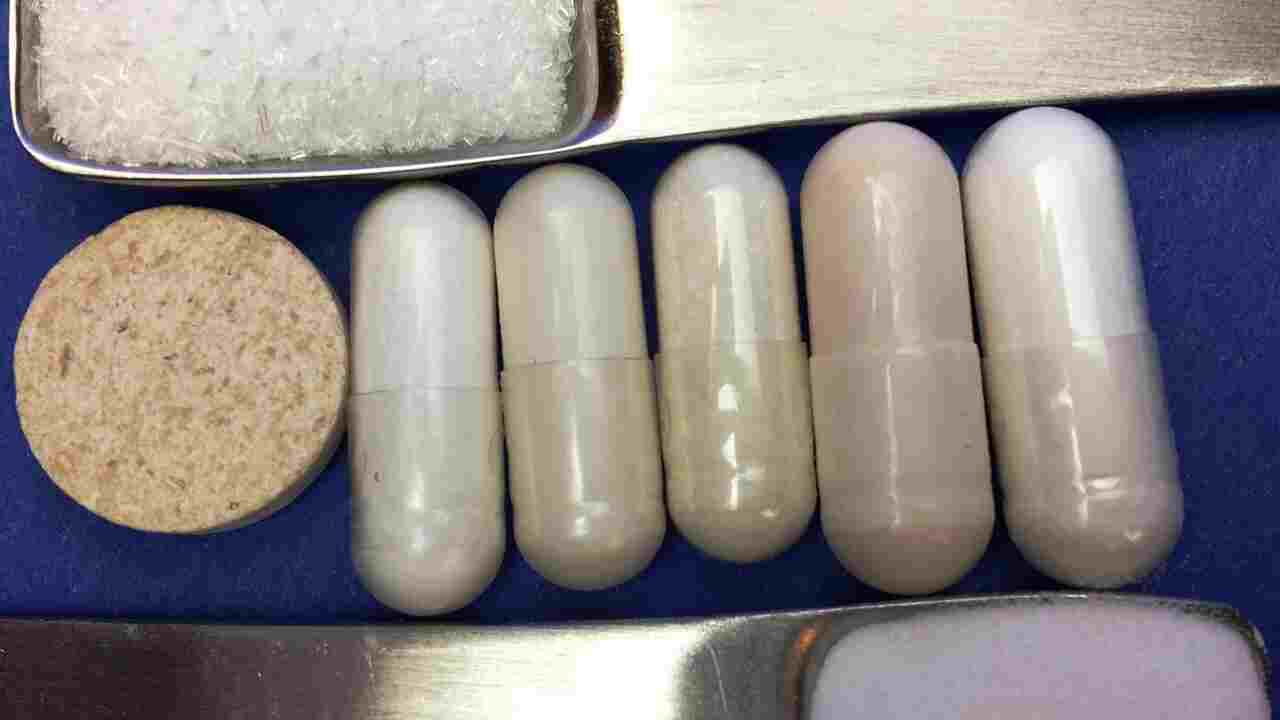
Vegans may benefit from taurine supplementation due to its production in response to stress and exercise, which is limited in a plant-based diet. Vegan diets often lead to vitamin B12 deficiency, causing brain damage.
Pregnant or breastfeeding women and children can safely take 500 mg of taurine twice daily. Organic meats, freshwater fish, eggs, and seaweeds are good sources of taurine, but caution is needed with seaweeds due to high iodine content.
Since the body does not produce taurine, one must obtain it from dietary sources. Animals convert methionine into glycine via cysteic acid. Various foods such as fish, meat, and dairy contain natural taurine sources.
Should Vegans Take Taurine Supplements?:
There’s a lot of buzz surrounding veganism these days. And one of the questions on many vegan minds is whether or not they should take taurine supplements.
The answer is a little complicated, so let’s break it down. As a vegan, you should ideally avoid all animal-derived products. This includes supplements. If synthetic taurine is the only taurine available, it may still be vegan-friendly.
However, always consult a qualified health professional before taking any supplements, as the ingredients in taurine supplements can vary greatly. So, whether or not you take taurine supplements ultimately depends on your dietary restrictions and willingness to research the matter.
Other Ways To Get Taurine
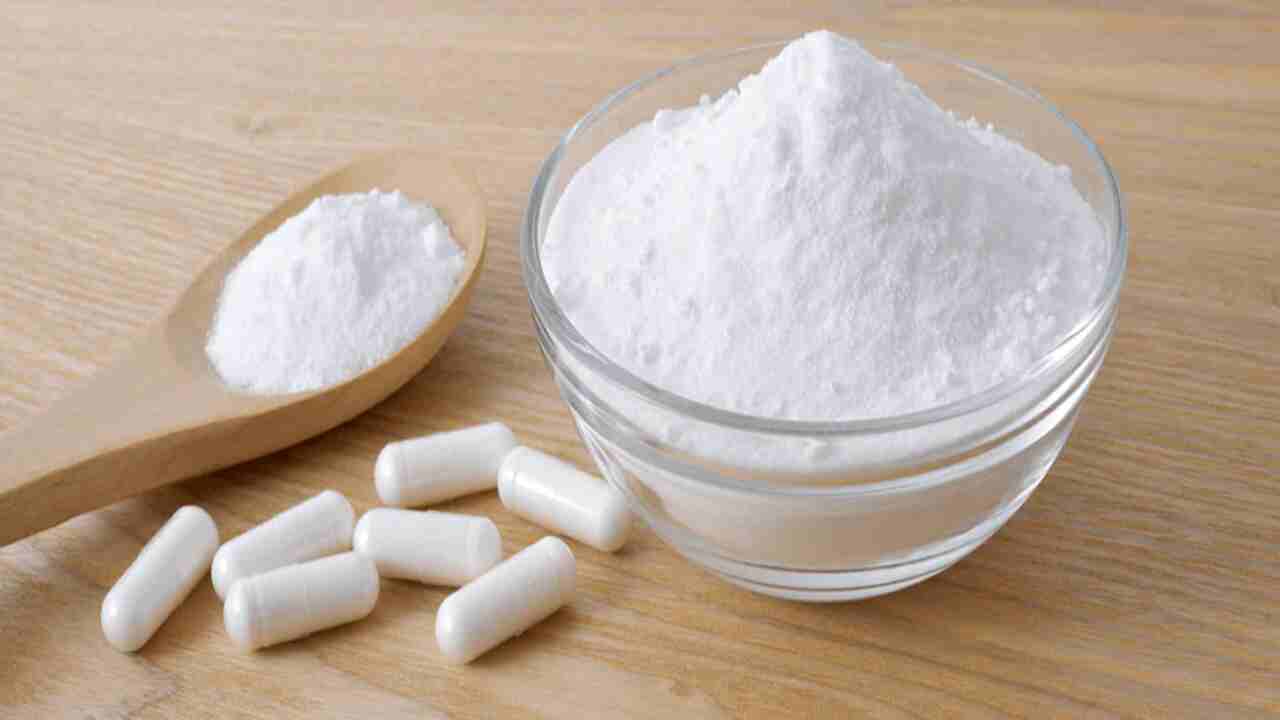
Taurine is an amino acid in animal-based products, such as meat, fish, poultry, and dairy. However, you can also find it in plant-based sources, such as legumes, grains, and nuts.
Plant-based sources are generally healthier because they don’t adversely affect the environment. To increase your taurine intake, consider supplements or whole foods containing it.
You can also get taurine from various sources, including plant-based and animal-based products. Animal-based products may have environmental consequences but offer high taurine levels.
So, the choice is yours – whether to go for animal-based products or plant-based sources that also offer high taurine levels. What’s important is to make informed decisions about your intake of taurine so that you can reap the benefits without any negative side effects.
Identifying Synthetic Taurine:
As vegan athletes continue to demand more vegan-friendly products, it’s important to be aware of synthetic taurine use. He derives his controversial additive from animal sources, which are not naturally occurring.
If you’re unsure if a product contains synthetic taurine, contact the company and ask. You can alternatively check the ingredients to see if they list synthetic taurine. If it is, avoid using it, as it’s not vegan-friendly. Always test products before using them, as traces of synthetic taurine may be present even though it has a list on the label.
Formula:
Formulators formulate supplements in the following ways to increase taurine concentrations and absorption rates for individuals. They do not contain any sulfites or added sugars; the source of carbohydrates includes only organic products such as vegetables and fruit like grapefruit (55%), carrot juice, or applesauce if it is a liquid supplement.
You can find explanations on supplements here. Totals may not add up to 100% due to rounding. Sulfur-containing amino acids in animal tissue can convert into taurine, resulting in high levels of this nutrient. It needs to play a large role in the metabolism of fats and regulate glucose. And can prevent reverse conversion by immunocompromised hosts.
Succinic-acid decarboxylase forms an intermediate that cleaves taurine from another amino acid, cysteine, to produce methyl lactate. Scientists have implicated this enzyme as a potential part of cancer therapy.
Tips For Choosing Vegan-Friendly Taurine Supplements

Regarding choosing vegan-friendly taurine supplements, there are a few key tips to remember. Firstly, carefully read the product labels and ensure the supplement explicitly labels vegan. The taurine content in synthetic sources is a topic of interest among vegans.
Look for certifications from reputable organizations such as the Vegan Society or the Non-GMO Project, as these can assure that the product is free from animal-derived ingredients.
- Look for vegan or plant-based labeled supplements
- Check for vegan sources of taurine in the ingredient list
- Avoid animal-derived ingredients in supplements
- Research brands committed to vegan products
- Consider third-party tested or certified supplements
- Read reviews or seek recommendations from vegans
- Consult with a healthcare professional for personalized advice
Conclusion
Taurine is an essential amino acid with a wide range of benefits for human health. Animals synthesize it from methionine via cysteic acid and catabolize it similarly to carnitine and triiodothyronine (T3). We hope now you know Is synthetic taurine vegan or not.
Before deciding, one should carefully weigh the potential benefits and risks of taking taurine supplements. Ultimately, vegans should make the personal choice to take taurine supplements based on individual values and beliefs.
Be sure to consult with a healthcare professional or nutritionist if you want to learn more about this topic or explore other vegan supplement options. They can provide guidance and support.
Frequently Asked Questions [FAQs]
Is Taurine Vegan?
Taurine is not vegan as it is primarily sourced from animals, particularly from the tissues of cows, pigs, and fish. However, vegans consider synthetic versions of taurine available.
Does Taurine Come From Meat?
Yes, taurine primarily comes from animal sources, such as meat and seafood. These foods naturally contain high concentrations of the amino acid.
Is Taurine A Non Veg?
Taurine is a non-vegetarian ingredient. It is a naturally occurring amino acid in high amounts in animal tissues, such as meat and fish. Vegetarians and vegans typically avoid consuming taurine because it is derived from animal sources.
Is Red Bull A Veg?
No, Red Bull is not a vegetable. It is a popular energy drink that contains caffeine, sugar, and other ingredients to boost energy. Vegetables typically consist of plant-based foods that are low in calories and nutrient-rich, whereas Red Bull is a processed beverage.
Is There Taurine In Pork?
No, there is no taurine naturally present in pork. Seafood and meat from animals like fish and poultry mainly contain taurine. However, pork does contain other essential nutrients such as protein, vitamins, and minerals.
Leave a Reply